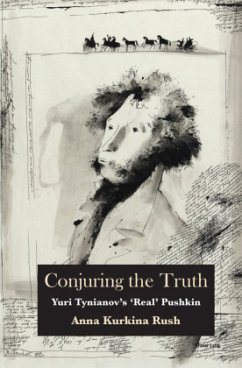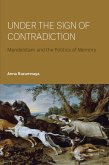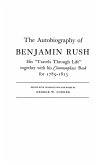This is the first single volume in either English or Russian on the representation of Pushkin in Yuri Tynianov's novels. It demonstrates the percipience and originality of Tynianov's concept of Pushkin's personality and assesses Tynianov's contribution to the Soviet historical novel. The approach re-orients the angle of investigation from the study of his novels as historical biographical works with their adherence to chronology and factuality to their study within the generic frameworks of other genres, which allowed Tynianov to create a new, artistically viable form of novel. The author investigates how and why an esteemed Formalist scholar, initially strongly anti-biographical, turned to biographical fiction; contextualizes the significance of his choice of genre and hero in the Soviet literary process of the 1920-30s; and examines theoretical approaches that enabled him to create an illusion of authenticity unprecedented in Pushkin novels. Building her analysis on the theoretical conclusions, she investigates Tynianov's artistic methods of interpreting the formative influences on Pushkin while focusing on the Formalist techniques of enhanced literariness. Exploration of each of Tynianov's novels demonstrates what Tynianov believed to be true about the origins and originality of Pushkin's genius, the nature of historical understanding, and Pushkin's own historical thinking. Appraising the mythopoeic techniques that Pushkin's forebears, family and the poet himself employed as means of reconstructing their origins, Rush demonstrates how Tynianov explodes some of the myths of self-representation in which Pushkin's paternal great-grandfather - and his offspring after him - indulged throughout their lives, and reveals how these myths paralleled Pushkin's anxieties concerning race and class. The study reveals the ways in which Tynianov, while grappling with and overrunning the monumentalizing national Pushkin myth, subverted the generic expectations of the historical novel, broke away from established tradition and elevated his novel to the level of «serious» literature.
Bitte wählen Sie Ihr Anliegen aus.
Rechnungen
Retourenschein anfordern
Bestellstatus
Storno








